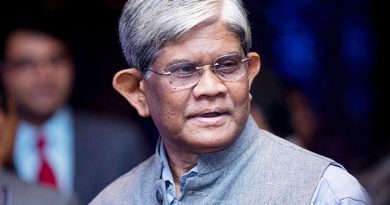Leading business chambers and trade associations have raised alarm over Bangladesh Bank’s continued contractionary monetary policy, warning that the rigid stance is curbing private investment, dampening business sentiment, and threatening overall economic stability.
In a statement issued Thursday, the Dhaka Chamber of Commerce and Industry (DCCI) expressed deep concern over the sharp decline in private sector credit growth, which fell to 6.4% in June 2025—the lowest in over two decades. The chamber pointed to this drop as evidence of a broader slowdown in investment and industrial activity.
Credit Crunch and Investment Drought
DCCI attributed the slump in credit expansion not only to the tightened monetary policy but also to wider structural issues, including deteriorating law and order, inadequate energy supply, and persistent policy uncertainty.
“High borrowing costs are squeezing working capital for cottage, micro, small, and medium enterprises (CMSMEs) and other productive sectors,” said the DCCI, noting that inflation has eased only marginally while interest rates remain prohibitively high.
Despite these challenges, the central bank retained the policy rate at 10% in its latest monetary policy statement, further tightening access to funds for the private sector. Bangladesh Bank also lowered the private sector credit growth target to 7.2% for the July-December period, down from 9.8% in the previous half-year, while raising the public sector credit target to 20.4%.
DCCI warned that this shift could crowd out private sector borrowers and add fiscal pressure on the economy.
Rising NPLs Raise Alarm
Adding to the financial stress, non-performing loans (NPLs) have surged to a record Tk 5.3 trillion, now accounting for 27.09% of total outstanding loans. The chamber called this a critical risk to financial sector stability and investor confidence.
To address the crisis, DCCI urged the central bank to take a more accommodative approach by:
- Easing credit conditions
- Lowering interest rates
- Extending loan classification deadlines by six months to support genuine borrowers
- Simplifying loan application procedures
It also called for structural reforms in the banking sector, improved transparency in credit allocation, and stricter oversight to ensure liquidity is directed toward productive sectors.
Exporters Voice Frustration
Echoing DCCI’s concerns, Mohammad Hatem, president of the Bangladesh Knitwear Manufacturers and Exporters Association (BKMEA), said exporters are bearing the brunt of the central bank’s restrictive policies.
“Our export competitiveness is declining due to high interest rates, withdrawal of critical facilities, and an increasingly harsh loan default framework,” Hatem said.
He pointed to reductions in key financial support mechanisms, including export incentives, the Export Development Fund (EDF), and the Tk 100 billion pre-shipment credit scheme, which he said have intensified pressure on exporters.
“All we are asking for is a fair playing field,” Hatem added, calling for a balanced policy that supports both macroeconomic stability and business growth.






